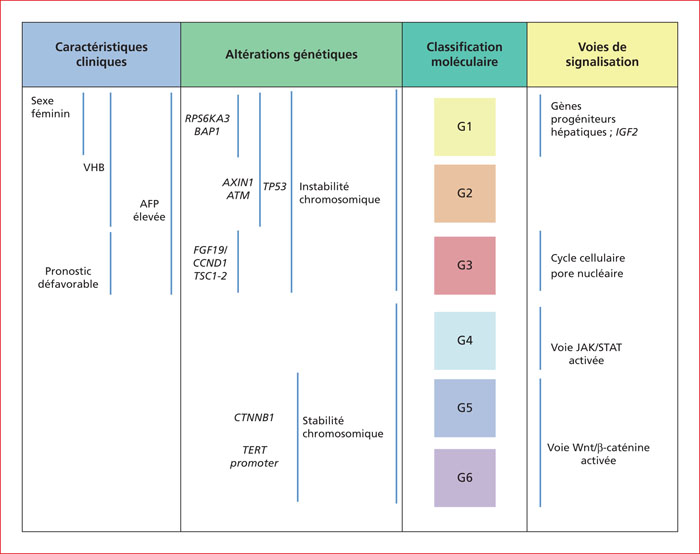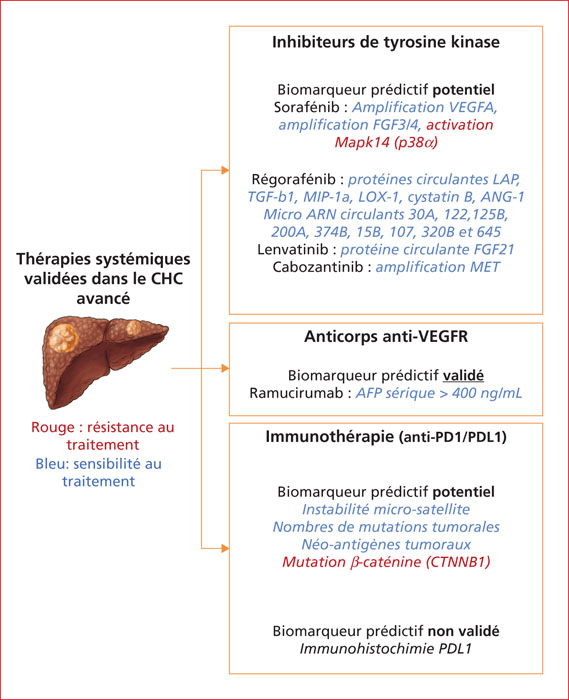Hépato-Gastro & Oncologie Digestive
MENUPrecision medicine in hepatocellular carcinoma Volume 27, supplement 1, Mai 2020
- Key words: targeted therapy, immunotherapy, predictive biomarker, genetic alteration, molecular classification
- DOI : 10.1684/hpg.2020.1966
- Page(s) : 17-25
- Published in: 2020
Hepatocellular carcinoma (HCC) is a heterogeneous tumor at the molecular level. Next generation sequencing has allowed to identify the mutations in driver genes of the main signaling pathways involved in liver carcinogenesis: Telomere maintenance, cell cycle gene, Wnt/B-catenin, epigenetic modifier gene, oxidative stress, akt/mtor and ras/raf map kinase pathways. These genetic alterations are associated with transcriptomic subgroup, clinical and histological features and define a genotype/phenotype classification of HCC in different molecular subgroups. The refinement of HCC genomic will be helpful to identify prognostic molecular signatures, biomarkers predictive of response to systemic treatments and new therapeutic targets for advanced HCC.



